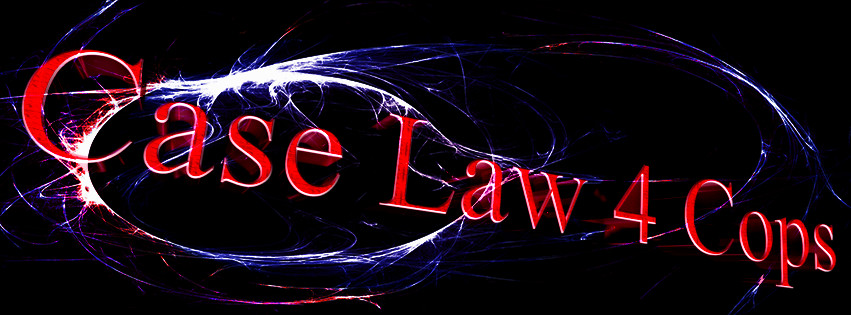Click on the case titles to link to the full case decision.
In Re Gault, 387 US 1 (1967)-The US Supreme Court in this case established that juveniles have several rights that adults have. 1) Due process requires adequate and timely notice. 2) There is right to counsel. 3) The privilege against self incrimination applies. 4) The juvenile has a right to a hearing with sworn testimony subject to the opportunity for cross-examination.
Tinker v. Des Moines School Dist, 393 U.S. 503 (1969)-Students can wear black arm bands in protest of the Vietnam war as long as they are not disruptive. "First Amendment rights are available to teachers and students, subject to application in light of the special characteristics of the school environment." Before a school can restrict First Amendment activity, the activity must substantially interfere with school discipline or the rights of others.
New Jersey v. T.L.O., 469 U.S. 325 (1984)- In this case the student was suspected of smoking in the bathroom. The school allowed smoking in designated areas, but not the bathroom. The student denied it. The Principal searched the student's purse and found cigarettes and drugs. He also found evidence that the student was dealing. The court ruled that a minor infraction like smoking in the bathroom does not rise to the level to allow a search. The court did say that if the Principal had reason to believe a student has evidence of illegal activity or evidence of activity that would be disruptive, a reasonable search was allowed. The significant points of this case are:
-
The relative rights of a student must be weighed against the need of the school to search the student's property.
-
The court allows school officials to conduct warrantless searches in conjunction with school related investigations.
-
A school official investigating a matter in which the school has a legitimate interest can question a student without giving a Miranda warning.
Bethel School dist. No. 403 v. Fraser, 478 U.S. 675 (1986)-Although students have free speech rights under the First Amendment, the schools have the authority to control vulgar speech and punish students who violate the rule. It is a function of schools to teach students how to express themselves in a manner that is not highly offensive or threatening to others. To allow otherwise is to invite disruption to the school atmosphere.
Hazelwood School Dist. v. Kuhlmeier, 484 U.S. 260 (1988)-Educators do not offend the First Amendment by exercising editorial control over the style and content of student speech in school-sponsored expressive activities so long as their actions are reasonably related to legitimate academic concerns.
Vernonia v. Acton, 515 U.S. 646 (1995)-Schools can drug test athletes. The court allowed the testing because:
-
Athletes have a decreased expectation of privacy due to the group atmosphere of the locker room.
-
A urine test is relatively unobtrusive.
-
School years are the time when the physical, psychological, and addictive effects of drugs are most severe.
-
Drug use increases the risk that an athlete could suffer injure.
-
The policy was undertaken in furtherance of the government's responsibilities, under a public school system, as guardian and tutor of children entrusted to its care.
Thompson v. Carthage School District 87 F. ed 979 (8th Cir. 1996)-A student was expelled from Carthage High School after crack cocaine was found in his coat pocket while school officials searched for weapons reported to be on school grounds. An action was filed upon behalf of the student alleging violation of the student’s Fourth Amendment rights. The Federal District Court found in favor of the student and awarded damages. The 8th Circuit Court of Appeals reversed the lower court ruling finding that the exclusionary rule should not apply to student disciplinary proceedings and that evidence obtained in an illegal search may be used in school disciplinary hearings.
Ashcroft v. Free Speech Coalition, 535 U.S. 234 (2002)-The Child Pornography Prevention Act of 1996 18 U. S. C. § 2256(8) sections (B) and (D) were ruled unconstitutionally vague. (B) refers to the ban on computer generated images that depict a child engaged in sexually explicit conduct. (D) refers to the use of youthful-looking adults portraying children engaged in sexually explicit conduct.
Safford Unified School District v. Redding, No. 08–479 (USSC 2009)-The strip searching of a 13 yrs old girl to look for pain relief pills that posed no danger to students violated her 4th Amendment rights.
E.W. v. Dolgos, No. 16-1608 (4th Cir. 2018)-SRO Dolgos handcuffed a calm, compliant ten-year-old who was surrounded by multiple adults in a closed room for hitting another child three days earlier. Although not injured by the handcuffing and only being handcuffed for 2 minutes, the lower court and Circuit Court ruled that handcuffing a minor under these circumstances was an excessive use of force. The Circuit Court ruled, however, that E.W.'s right not to be handcuffed under these circumstances was not clearly established at the time it occurred. Dolgos, therefore, had qualified immunity.
